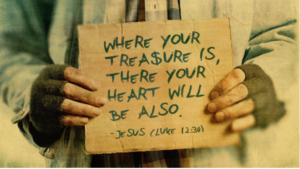 Guide to Fossil Fuel Divestment & Reinvestment
Guide to Fossil Fuel Divestment & Reinvestment
Let’s say that you support organizations like ICCT dedicated to Creation Care and fighting climate change; maybe you do even more: you plant trees, electrify your home and automobile, buy less, waste less, and maybe even install solar. All of those are good things. Very good things. But how do those actions stack up against the fact that, since 2015, the world’s 60 largest banks have invested more than $3.8 trillion in fossil fuel companies? Those figures are, at the very least, discouraging.
But what if it was possible to deprive those companies of the funds that keep them drilling, fracking, and mining to the world’s detriment?
Thanks to Durham Friends Meeting Earth Care Witness, ICCT has a new resource which shows us how we can do just that. “Climate and Money: A Guide to Fossil Fuel (FF) Divestment and Reinvestment” is divided into the sections below. They provide information on the what and why of divestment, identify banks or funds to divest from, and explain how to divest and then reinvest in a more livable whole earth community.
A. What is Divestment from Fossil Fuels and Why Do It?
B. Which Banks/Investment Funds/Companies Should We Divest From?
C. How Do We Divest from Fossil Fuels?
D. Where Could We Put Our Money Instead?
If we can persuade banks to stop financing fracking, pipelines, and other fossil fuel projects, we can help stop the money pipeline that is financing the destruction of the planet. The key is getting large numbers of people to move their money from climate-bad banks and letting the banks know why we are doing it.
Think this is an exercise in futility? Remember the example of South Africa. Refusing to support apartheid, 155 campuses – including some of the most famous in the world – divested from companies doing business in South Africa by the mid-1980s. Twenty-six state governments, 22 countries, and 90 cities also withdrew their money from multinationals that did business in the country. That divestment campaign helped break the back of the Apartheid government and usher in an era of democracy and equality.
Environmental research scientist, Quaker, activist and author Jennie M. Ratcliffe provided the lion’s share of the research for “Climate and Money.” Jeannie is the author of Nothing Lowly in the Universe: An Integral approach to the Ecological Crisis, a comprehensive analysis of our current environmental predicament including its spiritual and moral dimensions. After obtaining a master’s degree in pollution studies at the University of Manchester she completed a doctorate in environmental epidemiology and postdoctoral fellowship in toxicology at the University of London, U.K. She has worked for the US Centers for Disease Control and Prevention, the National Institute of Environmental Health Sciences, the Universities of London and North Carolina, and has been active in peace, social and ecological concerns for many years in the Quaker community and other local groups.



